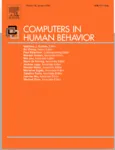Self-Regulated Learning (SRL) is related to increased learning performance. Scaffolding learners in their SRL activities in a computer-based learning environment can help to improve learning outcomes, because students do not always regulate their learning spontaneously. Based on theoretical assumptions, scaffolds should be continuously adaptive and personalized to students' ongoing learning progress in order to promote SRL. The present study aimed to investigate the effects of analytics-based personalized scaffolds, facilitated by a rule-based artificial intelligence (AI) system, on students' learning process and outcomes by real-time measurement and support of SRL using trace data. Using a pre-post experimental design, students received personalized scaffolds (n = 36), generalized scaffolds (n = 32), or no scaffolds (n = 30) during learning. Findings indicated that personalized scaffolds induced more SRL activities, but no effects were found on learning outcomes. Process models indicated large similarities in the temporal structure of learning activities between groups which may explain why no group differences in learning performance were observed. In conclusion, analytics-based personalized scaffolds informed by students’ real-time SRL measured and supported with AI are a first step towards adaptive SRL supports incorporating artificial intelligence that has to be further developed in future research.
Lim, L., Bannert, M., van der Graaf, J., Singh, S., Fan, Y., Surendrannair, S., Rakovic, M., Molenaar, I., Moore, J., & Gašević, D. (2022). Effects of real-time analytics-based personalized scaffolds on students’ self-regulated learning. Computers in Human Behavior, 139 (2023), 107547 . DOI:10.1016/j.chb.2022.107547
The paper can be accessed here
Information about the international FLoRA Project can be found here
